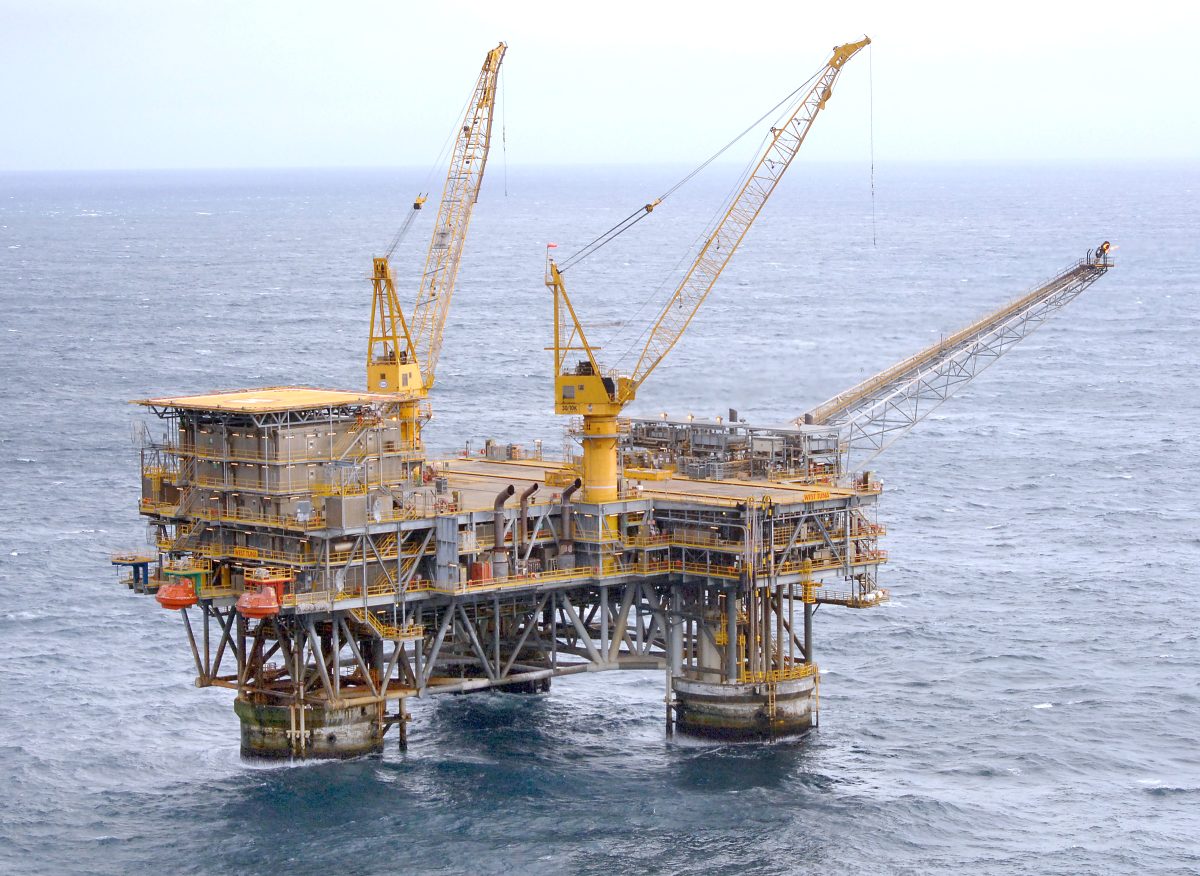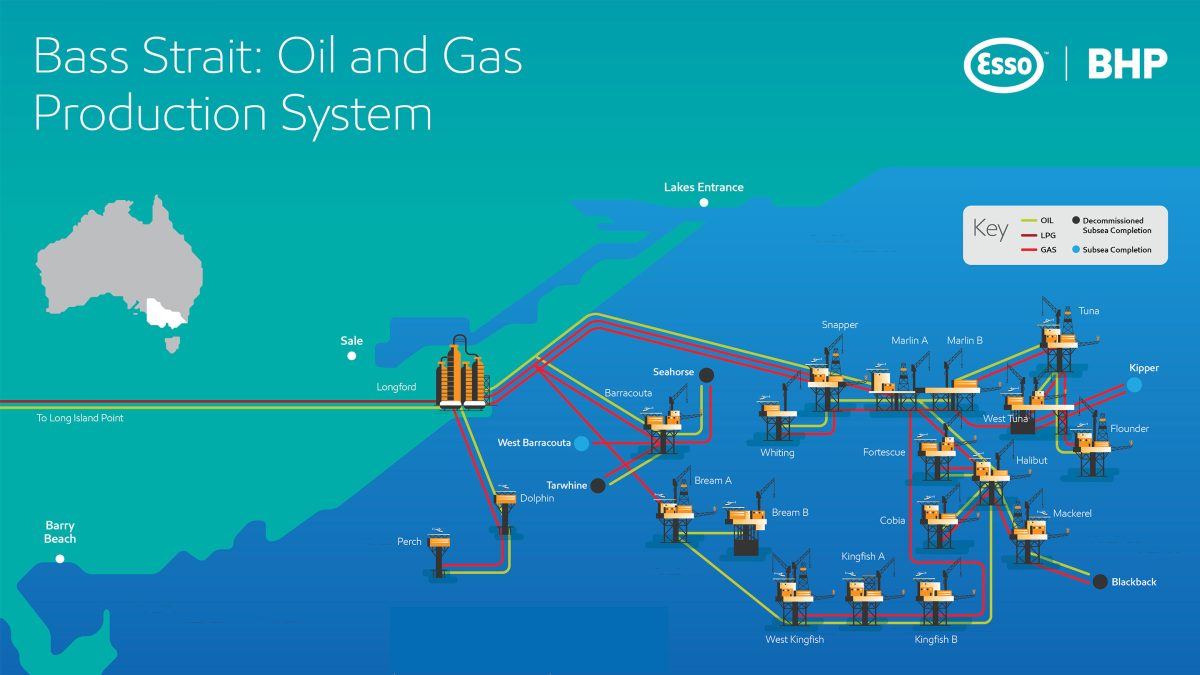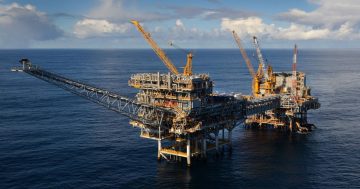
West Tuna, one of the already decommissioned offshore oil platforms near the Gippsland coast. Photos: ExxonMobil Australia.
Friends of the Earth (FoE) has called on the Federal Government to block Esso Australia’s plan to take down its offshore facilities in waters near Victoria’s Gippsland coast.
The multinational fossil fuel company owned by Woodside and ExxonMobil operates the Bass Strait Oil and Gas System.
It recently applied to the government to decommission eight of the 13 offshore facilities it is expected to withdraw from the waters over coming years. As part of the process, it is planning to remove all steel platforms down to a depth of 55 metres below mean sea level or at the seabed, depending on the location.
FoE says the parts to be removed have been found to contain high levels of asbestos, mercury, lead and other heavy metals, along with thousands of tonnes of hazardous radioactive waste.
This waste is produced from naturally occurring radioactive material (NORM), a combination of substances including uranium, thorium and radon gas that is sucked up from beneath the ocean floor and concentrated in the pipelines and platforms.
As this happens, the NORM is turned into the more damaging technically enhanced naturally occurring radioactive material (TENORM). The environmental group claims a high level of toxins and radioactivity in the resulting sea life will tarnish Esso Australia’s plan to create artificial reefs in the project’s wake.
FoE said the government must immediately reject its application and force the company to safely and responsibly remove all the steel and other recyclable materials from the facilities.
“Esso has to rent a European decommissioning ship, so they are rushing to complete the Bass Strait decommissioning in one season,” said fossil gas campaigner Jeff Waters.
“If they were to be forced to recycle the hundreds of thousands of tonnes of perfectly good steel, they’d need to hire such a ship over several years.”

A 2022 map of the Bass Strait Oil and Gas System, showing the oil platforms off the Gippsland shore.
Esso Australia told Daily Cargo News it rejected FoE’s claims, stating it was confident its plan delivered an equal or better environmental outcome.
A company spokesperson said it would ensure the vast majority of each of the steel platforms removed from Bass Strait was recycled onshore. And the operation’s steel-piled jackets were 98 per cent iron and did not contain any mercury, lead, cadmium, asbestos or NORM.
The spokesperson added that any steel remaining would support the ecosystem as it contained no hazardous or toxic material and was similar to scuttled vessels that were designated protected marine parks.
“The majority of our structures are completely covered in marine life, which is in turn providing a habitat and a source of food for over 55 species of fish and larger marine fauna such as seals and sharks,” said the spokesperson.
“As part of our decommissioning planning, we partnered with expert researchers, academics and environmental consultants to complete a three-part comprehensive offshore environmental survey, which included a detailed examination of fish and epibenthic communities, a benthic infauna identification and a sediment analysis.”
The spokesperson said the company’s plan struck the right balance between the safety of navigation (IMO standard) and preserving thriving marine ecosystems that had developed around the jackets.
“We have already safely completed over $1 billion of decommissioning work across our offshore operations, including the plug and abandonment of over 100 wells,” said the spokesperson.
“In order to support this increasing well abandonment scope, we have contracted or mobilised six additional mobile offshore assets including the Skandi Darwin multi-purpose support vessel, Helix Q7000 semi-submersible drill rig, Valaris 107 jack-up drill rig and three additional platform-based drill rigs.”
Despite that response, FoE said the Victorian Government needed to join its federal counterpart and demand the steel be recycled.
“They’re using scientific studies that they paid for to justify turning the ocean off Gippsland into a toxic dump,” said Mr Waters. “It’s also a waste of perfectly good steel that could be recycled and turned into much-needed wind-turbine towers and bases.”
As part of its Recycle The Rigs campaign, the organisation is calling on the Federal Government to extend the existing temporary decommissioning levy to force the oil and methane industry to pay for world-standard onshore breaking and recycling facilities.



